H-1B1 – Professionals from Chile and Singapore (9 FAM 402.10-5)
Portions of the content on this page are available as public information on the USCIS website.
Criteria for Eligibility
The H-1B1 nonimmigrant visa category allows U.S. businesses to temporarily employ foreign nationals from Chile and Singapore in specialty occupations. A “specialty occupation” is defined as an occupation that requires (1) theoretical practical application of a body of highly specialized knowledge and (2) attainment of a bachelor’s or higher degree in the specific specialty (or its equivalent) as a minimum for entry into the occupation in the United States. The nonimmigrant in a specialty occupation must possess the following qualifications:
- Full state licensure to practice in the occupation, if licensure is required for the occupation;
- Completion of the required degree; or
- Experience in the specialty equivalent to the completion of such degree and recognition of expertise in the specialty through progressively responsible positions relating to the specialty.
To be eligible for the H-1B1 visa, the foreign national must be a national of Chile or Singapore.
Application Process
The H-1B1 visa is subject to an annual quota, but this quota is not reached, so applicants can apply for the H-1B1 visa at any time of year.
It is possible to apply for the H-1B1 visa as a change of status application from within the United States or a foreign national can apply for the visa directly with a U.S. Embassy or Consulate abroad.
If applying directly with the U.S. Embassy or Consulate abroad, the petitioning employer must prepare and file a Labor Condition Application (LCA) with the U.S. Department of Labor and must also attest that it will pay the H-1B1 employee at least the minimum “prevailing wage” for the position.
Once the LCA is approved, the employer prepares an application package including evidence that the position qualifies as a specialty occupation and that the foreign national is qualified with for the position and meets the minimum degree requirement. The foreign national completes the U.S. Department of State’s online visa application—DS-160, pays the visa fee, and schedules the visa appointment with a U.S. Embassy or Consulate abroad. The foreign national presents the H-1B1 application package at the visa appointment. If the visa appointment is successful, the foreign national will receive the H-1B1 visa in their passport and they will be able to enter the United States and begin working in H-1B1 status.
If the foreign national is in the United States in another nonimmigrant visa status, they can choose to submit a change of status application from within the United States. In this case, the petitioning employer prepares the LCA and then files a petition for a nonimmigrant work visa with USCIS. If the H-1B1 petition is approved, USCIS will issue an I-797 Approval Notice and the foreign national will automatically be in H-1B1 status.
Validity Period
Initial: The H-1B1 status is valid for a 1-year period.
Extension: The foreign national may leave the United States each year to obtain a new 1-year H-1B1 visa status or they can file an extension application from within the United States.
Total: The H-1B1 status can be extended indefinitely.
Change of Employer
H-1B1 visa holders are able to change employers by having a new employer sponsor a new H-1B1 petition on their behalf.
Family of Visa Holder
Dependents of H-1B1 visa holders (spouse and unmarried children under the age of 21) may apply for the H-4 visa. The H-4 visa status allows dependents of the H-1B1 visa to live in the United States and attend school, but not to work.
We Represent Clients Nationwide And Around The World
Contact Us To Learn More
Call David Hirson & Partners, LLP, in Costa Mesa, California at 949-441-4003 or our Seattle, Washington, office at 206-926-3973 or contact us by email to arrange a consultation with one of our immigration attorneys today.
Disclaimer: The use of the internet or this form for communication with the firm or any individual member of the firm does not establish an attorney-client relationship. Confidential or time-sensitive information should not be sent through this form.

